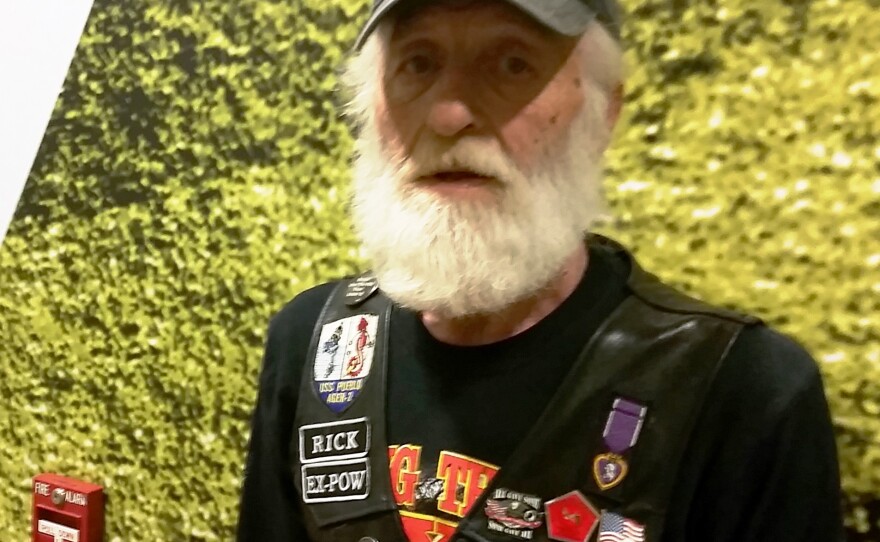One of the most famous incidents of the Vietnam War didn't happen in Vietnam.
On January 23, 1968, the USS Pueblo was conducting a surveillance mission off the coast of North Korea when it was seized. More than 80 men were captured and held prisoner for nearly a year.
One of those men was Michigan native Richard Bame.
WKAR's Kevin Lavery met Mr. Bame at the VA hospital in Ann Arbor to hear his story.
RICHARD BAME:
First, they fired shots across our bow and then they fired anti-personnel airbursts to get the people off the deck. Then, they actually started hitting us. They started putting shells on us; 58 mm cannon, I believe...about the size of a beer can.
KEVIN LAVERY:
What is going through your mind as all this is happening?
BAME:
I couldn’t really believe it. I was down in the engine room so I couldn’t actually see anything, but you’d hear the ‘ting-ting-ting’ of machine gun fire and every once in a while, ‘bump,’ when one of the shells would go off or one would hit. I had no idea what the real action looked like. I just knew that we were being boarded; there was some sort of conflict going on.
LAVERY:
The next thing you know, you’re being marched off the ship and you’re standing on North Korean soil.
BAME:
Right. They unloaded us and put us aboard a train to take us to, I believe, their capital city (Pyongyang). And then about an hour before we arrived, they kicked the heat up really high on the train, so that when we got off the train and into the extremely cold weather – everyone was wearing light jackets and whatever – and everyone immediately started shivering. I’m sure they (North Koreans) were saying we were quaking in fear.
LAVERY:
What did you have to do, Mr. Bame, emotionally and psychologically to handle each day?
BAME:
Wake up each morning and feel like you were going to make it through the day. Do what you had to do to get there. Do what you could do to undermine any propaganda they were trying (to create). There were more middle fingers stuck up in camera shots, in videos, in movies, things done backwards...anything that we could do to undermine their propaganda. Every once in a while it cost you a bloody nose or a black eye.
LAVERY:
I’ve heard about that. I’ve heard that the North Koreans didn’t understand the gesture of the middle finger, but then when they figured that out...
BAME:
That was a “Hawaiian Good Luck” sign until someone put it into a national publication that they thought the room was signaling for help. The answer to that was, ‘you darned fool...that was an obscene gesture.” All of a sudden, things got tough. That started ‘hell week,’ which lasted about eight or 10 days. Then it all went away and they suddenly started taking care of anyone who had visible bruises. They could clean up a visible bruise in a hurry, too. A couple or three days, and my black eye was gone.
LAVERY:
What’s more difficult: 11 months in a North Korean prison camp, or 49 years of living with it?
BAME:
Personally, probably the 11 months in the camp. They tell me that I’m suffering from about 70 percent post-traumatic stress, but it’s nothing that I really notice.
LAVERY:
You were extraordinarily lucky, then, to have relatively little psychological effect.
BAME:
Relatively little. I know at one point when we were captured, there was about 18 inches of air space between me and one of those 58 mm cannon shells, but there was also a deck in between us. I think about that occasionally. And the time the guy stuck the machine gun in my back, and I’m sure he was telling me in his language that he was going to shoot me. As it happened, he didn’t shoot me and so I had another day to live the next day.




